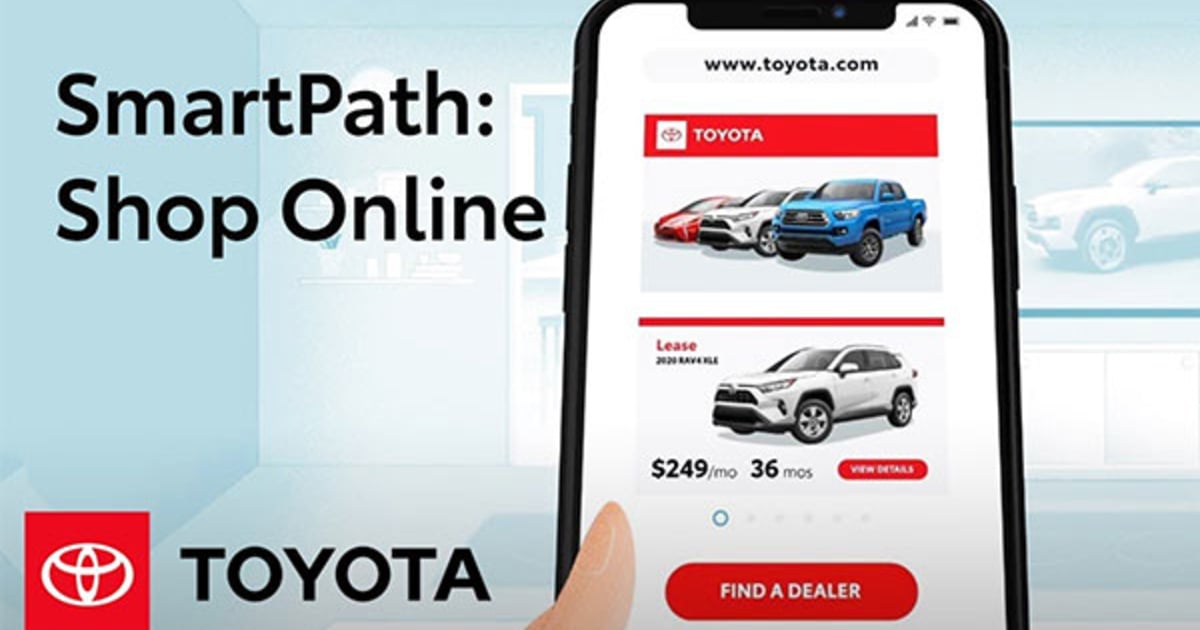
Like the root system anchoring a growing tree, Toyota Motor North America’s SmartPath and the Monogram digital retailing tool by Lexus are spreading out across the automaker’s 1,500 retailers.
After starting with new-vehicle sales and later moving to used vehicles and then service, Toyota’s homegrown digital ecosystem for its dealerships will grow this year into another major revenue area for most stores: finance and insurance.
And it’s doing so with more than one-third of Toyota and Lexus dealerships already running SmartPath or Monogram, with about two dozen more being switched on each month, said John Myers, who succeeded Tim Bliss as general manager of retail transformation for Toyota Motor North America.
“If you look at all of those products together — sales, digital F&I and service — you’ve got an infinity loop for not only the customer, but also the vehicle,” Myers said. “And it’s not just the first customer; it could be the second or third customer in that vehicle. When you take the synergy of those [operations] working together, sharing together, and then you start to add in things like connected car? It starts to become a very powerful tool for the dealer.”
SmartPath, used by Toyota retailers, and Monogram, its Lexus counterpart, debuted in a handful of pilot dealerships in 2019. In its original form, the software suite enabled stores to promote their new-vehicle inventory in real time and with accurate dealership-set pricing — inclusive of incentives and local taxes and fees — across both their website as well as inventory on toyota.com and the regional shopping portal buyatoyota.com.
It also allowed consumers to get accurate payments and trade-in estimates online, before ever stepping foot in a dealership. Customers could then complete a deal in a store.
The timing of SmartPath’s rollout proved incredibly beneficial because of the three-year-long pandemic. Dealers who had it installed saw improved sales efficiency, reduced transaction times and increased profitability.
But the software still required customers to come in to complete their deals. In the intervening years, the suite was expanded to include a service component, allowing customers to schedule appointments online, check on repair progress and pay their bills. But the F&I piece — the ability to not only secure financing, but to go through a litany of warranty products and other offerings outside the dealership — was notably absent, in part to remain compliant with laws and regulations.
“For years now, we’ve been powering the sales product, but now we’re moving to finish that transaction in F&I,” said Matt Heydon, group manager for retail transformation with Toyota Financial Services. “It’s the final mile on our sales product — an automated workflow for the dealer and a compliant workflow for the dealer, end to end.”
Like earlier pieces of the SmartPath and Monogram suites, the F&I portion will be fully customizable by dealerships, Heydon said, allowing them to incorporate other lenders as they desire while still continuing to work with their choice of dealership management and customer relationship management systems.
Rollout of the F&I piece of SmartPath and Monogram is expected to begin in earnest late this year, Heydon said, at roughly the same time when SmartPath Service will be installed at the first 225 of the two brands’ dealerships. He compared the suites’ pace of development and rollout to the fundamentals of the Toyota Manufacturing System, saying it had been built slowly “to try and build the quality upfront and systematically [eliminate] the errors and defects” as the product matures.
“This SmartPath experience will do the same,” Heydon said. “You won’t have bad contracts, you won’t have errors” because of noncompliance or typos. “We should be helping the dealer and the customer have a quality experience, Job 1 right? And then no more fixing stuff after the fact. We’re very excited about it.”